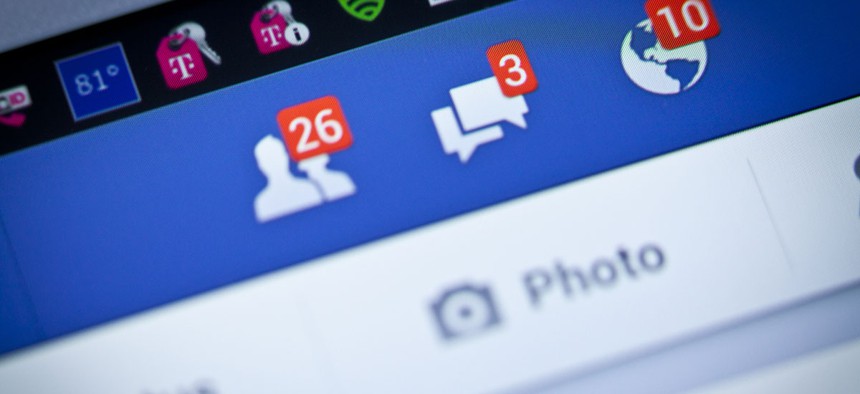New Facebook Feature Lets Users Contact Elected Officials Directly Through Posts

JaysonPhotography/Shutterstock.com
It’s part of the social media giant’s efforts to connected people to government representatives.
Facebook users can now get in touch with lawmakers directly through Facebook posts, according to TechCrunch.
As they compose written posts to share with followers, users can add links to elected officials' contact information, making it easier for readers to reach them. The new feature doesn't "tag" or notify those lawmakers they've been referenced, but may encourage a user's followers to contact those lawmakers, if interested.
The feature, available on the Facebook pages for groups or individuals, is one of several the social media giant has introduced to link citizens to their local, state and federal representatives. Facebook's new "Town Hall" effort included a suite of other tools; another lets users call or message a lawmaker and then share a post to followers documenting that action later.
Previously, users could only call up representatives' information automatically as they composed a message if they had "liked" or commented on a post from that official. The new development lets users link to that information in any post, regardless of whether they've connected with them before, TechCrunch reported.
The White House has used Facebook to connect with citizens directly, too.
Last year, it introduced a chatbot that let users send messages directly to the president, just as they might have in a physical letter. That chatbot was "an important part of furthering our mission to 'meet the public where they are.' Millions of people contact their friends and family using Facebook Messenger. Why shouldn’t they be able to contact the White House, too?," Jason Goldman, then-White House chief digital officer, wrote in a blog post. The team that coded that bot encouraged other federal agencies to set up their own, according to the White House.
The company is shifting from connecting "friends and families" to "developing the social infrastructure for community—for supporting us, for keeping us safe, for informing us, for civic engagement and for inclusion of all," Facebook CEO Mark Zuckerberg wrote in a blog post February.
In times like these, the most important thing we at Facebook can do is develop the social infrastructure to give people the power to build a global community that works for all of us," he added.
NEXT STORY: What Went Wrong with DHS' Agile Contract?





